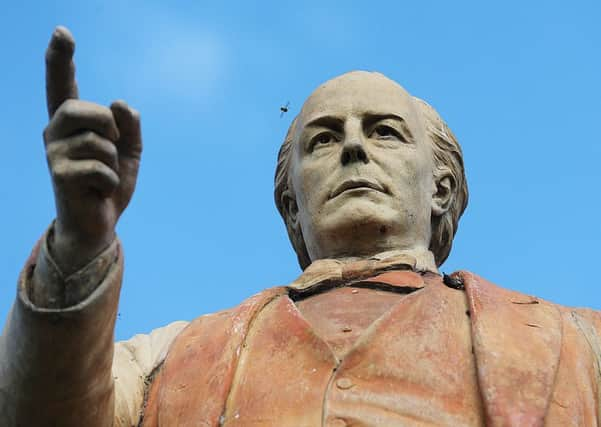Column: What have unions done for us?


I really feel for working artists – imagine being propositioned for your services in the following way: ‘We can’t pay you but the exposure will be great!’
Never mind your next meal, rent, mortgage bills or future security. Let’s call it out for what it is – exploitation.
Advertisement
Hide AdAdvertisement
Hide AdLuckily we have trade unions and thank heavens for that. The right to form and join trade unions, to collectively bargain and to strike are universal human rights.
But what have trade unions ever done for us?
One of Margaret Thatcher’s legacies was to unjustly tarnish the reputation of workers organising themselves to ensure that every day people’s welfare during their employment hours are protected.
The reality is that the trade union movement is directly responsible for so-called perks that most of us take for granted these days such as weekends off, equal pay and equal opportunities, maternity pay, minimum and living wages, flexible working hours, workplace health and safety and the right not to get sacked if you are ill.
The movement has a long and rich history which also is connected to Northampton.
Advertisement
Hide AdAdvertisement
Hide AdThe matchgirls’ strike of 1888 was supported by our very own local hero, Charles Bradlaugh MP.
I believe that the Bow Matchgirls and women deserve a blue plaque (at the very least) for their fight and strike against management bullying and exploitation (poor working conditions in the match factory, including 14-hour work days, poor pay, excessive fines and the severe health complications of working with white phosphorus, (such as ‘phossy jaw’).
Their strike was won with little support or funds and they inspired the 1889 Great Dock Strike for worker’s rights.
Now, back to the current day, trade unions have taken up the fight against zero-hour contracts and the unfairness of the so-called ‘gig economy’.
Advertisement
Hide AdAdvertisement
Hide AdRecent employment figures are deeply skewed and misrepresentative of the current work health of the public – you only need to be considered ‘employed’ if you have worked one hour in a given week according to the Office for National Statistics.
They get their data from what is known as the Labour Force Survey.
Zero-hour contracts are simply wrong.
‘Better than Zero’ is a workers’ movement who as they say on their website: ‘are fed up with bosses thinking they’re beyond reproach’.
In fact, last year they supported a bar worker in Inverness who went on to win a legal dispute with his former employer about the last-minute cancellation of his shifts when he was employed on a zero-hours contract.
Advertisement
Hide AdAdvertisement
Hide AdAccording to a study by UCL Institute of Education, insecure wages create ill health in young people.
It seems intuitive to predict that lack of guaranteed hours and therefore lack of income is going to cause financial instability and risk of poverty, not being able to budget life costs from week to week.
Regular and secure wages are not enough; people also need a living wage.
Quite simply, a living wage is paying people the wages that they and their family need to live on in order to get by based on the cost of living.
Advertisement
Hide AdAdvertisement
Hide AdThe Living Wage Foundation is campaigning to ensure that this a right for everyone, thereby protecting low income workers.
Lots of high profile companies and organisations have already signed up to their accreditation as a ‘Living Wage’ employer such as ITV, Google, IKEA, Everton FC and Chelsea FC.
So, what have trade unions ever done for us and why are they still relevant? Quite a lot, actually, as it happens and they continue to campaign on and protect good practice in the treatment of employees.
We shouldn’t take for granted these hard fought for rights.
That is why in the spirit of the brave Bow Matchgirls and women I’m joining a trade union.